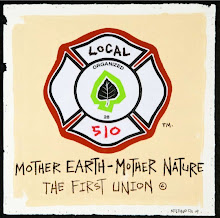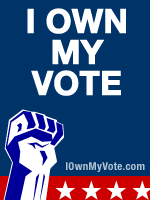Stuck in the middle
President Obama carries the torch for the millions of Americans who aren't really Boomers, but aren't really Xers either. Meet the generation in which idealism trumps ideology, in which pragmatism is the guiding light.
By Jonathan Pontell
For 16 years, Baby Boomers occupied the Oval Office. Bill Clinton and George W. Bush came of age during the 1960s — the decade that spawned the culture wars that would define national affairs for the next 40 years. Conventional wisdom holds that post-Boomer Barack Obama's inauguration once and for all ended that tumultuous era's long grip on American politics. But are the '60s really dead? Hardly.
While the Boomer moment may be over, most observers have misread the generational significance of Obama's inaugural. It really marks the 1960s' second act. The difference is that the torch has passed from that decade's "flower children" to its actual children.
Obama was born in 1961 — 15 years after Clinton and 19 years before Chelsea. He is neither Boomer nor GenXer. Instead, he belongs to a distinct generation in between, one long under the radar and only now making its full impact felt.
I coined the term "Generation Jones" for this large cohort born between 1954 and 1965. It's a generation that includes the new president, me and 53 million other Americans. Jonesers have long been lumped with Boomers simply because we arrived during the same long post-World War II spike in births. But generations arise from shared formative experiences, not head counts, and the two groups evolved with dramatic differences. Our background is just as distant from Generation Xers'. We fill the space between Woodstock and Lollapalooza, between "Turn on, tune in, drop out" and "Just Say No," and between Dylan going electric and Nirvana going unplugged. Jonesers have a unique identity separate from Boomers and GenXers. An avalanche of attitudinal and behavioral data corroborates this distinction. Generational self-identification is particularly compelling. When polled, those in this age group identify not with Boomers or GenXers, but overwhelmingly with this generation in between.
So who are we? We are practical idealists, forged in the fires of social upheaval while too young to play a part. The name "Generation Jones" derives from a number of sources, including our historical anonymity, the "keeping up with the Joneses" competition of our populous birth years, and sensibilities coupling the mainstream with ironic cool. But above all, the name borrows from the slang term "jonesin' " that we as teens popularized to broadly convey any intense craving.
The Jones runs deep in us. It arose from our 1960s childhoods. While the Boomers were out changing the world, Jonesers were still in elementary school — wide-eyed, not tie-dyed. That intense love-peace-change-the-world zeitgeist stirred our impressionable hearts. We yearned to express our own voice. By the time we came of age and could take the stage, though, a decade of convulsions had left the nation fatigued. During the game we'd been forced to watch from the sidelines, and passage into college and careers came only after the final gun had long since sounded.
The Boomers had their opportunity, and the GenXers weren't around soon enough to bear witness. Neither was left jonesin'. But the actual children of the 1960s yearned for something more. Our unrequited idealism has bubbled beneath the surface ever since.
Obama has The Jones. It permeates his biography and his philosophy. It's a crucial piece of his identity. His message and approach reverberate with GenJones themes.
Recognizing this generational mindset provides insight not only into an Obama presidency, but into America itself in 2009. Generation Jones is poised to grab the mantle of leadership. More than a quarter of all U.S. adults are Jonesers. We've ascended to unprecedented positions of leadership in business and government. Not only Obama, but also many of his key appointees, are members of GenJones. Our size, age and influence across the board make us an irresistible force.
But there is something beyond our mere demographic might. What makes us Jonesers also makes us uniquely positioned to bring about a new era in American politics. Our practical idealism was created by witnessing the often-unrealistic idealism of the 1960s. And we weren't engaged in that era's ideological battles; we were children playing with toys while Boomers argued about Vietnam. Our non-ideological pragmatism allows us to resolve intra-Boomer skirmishes and to bridge that volatile Boomer-GenXer divide. We can lead.
Last century, Thomas Wolfe wrote that another generation wasn't lost so much as undiscovered. "And the whole secret, power and knowledge of their own discovery," he declared, "is locked within them — they know it, feel it, have the whole thing in them — and they cannot utter it." Generation Jones is clearing its throat. Its voice will be heard. What had been a steady stream of unsolicited e-mails to me from supportive Jonesers before the election is now a flood. A generation aching to act has awoken. We are finally scratching the itch of The Jones.
For Boomers, the legacy of the '60s is ideology, but for Jonesers it is idealism. That spirit of the '60s is far from dead; its seeds were planted in us then, and are flowering now. We're not late Boomers; we're late bloomers.
Jonathan Pontell is a social commentator who focuses on the intersection of politics and culture (JonathanPontell.com).
AND there is this:
PLUS all the stuff on Google about Generation Jonesers! Check it out.
Tuesday, August 18, 2009
As Reported in USA Today on June 26, 2009
Posted by
la fin du siècle
at
3:36 PM
![]()
Labels: GenJones, Jonathan Pontell, Late Bloomers Not Boomers, USA Today
Subscribe to:
Post Comments (Atom)





























No comments:
Post a Comment